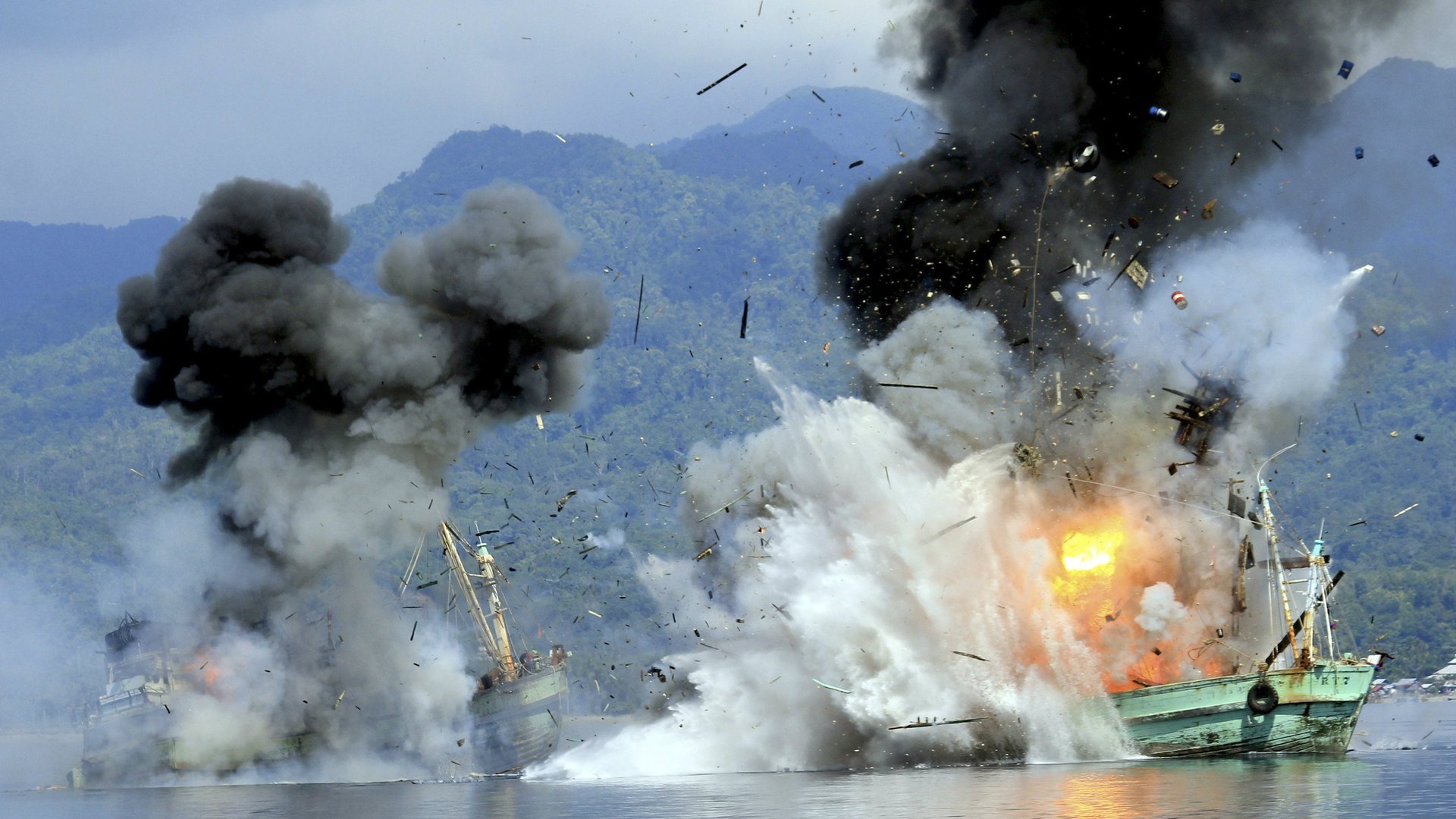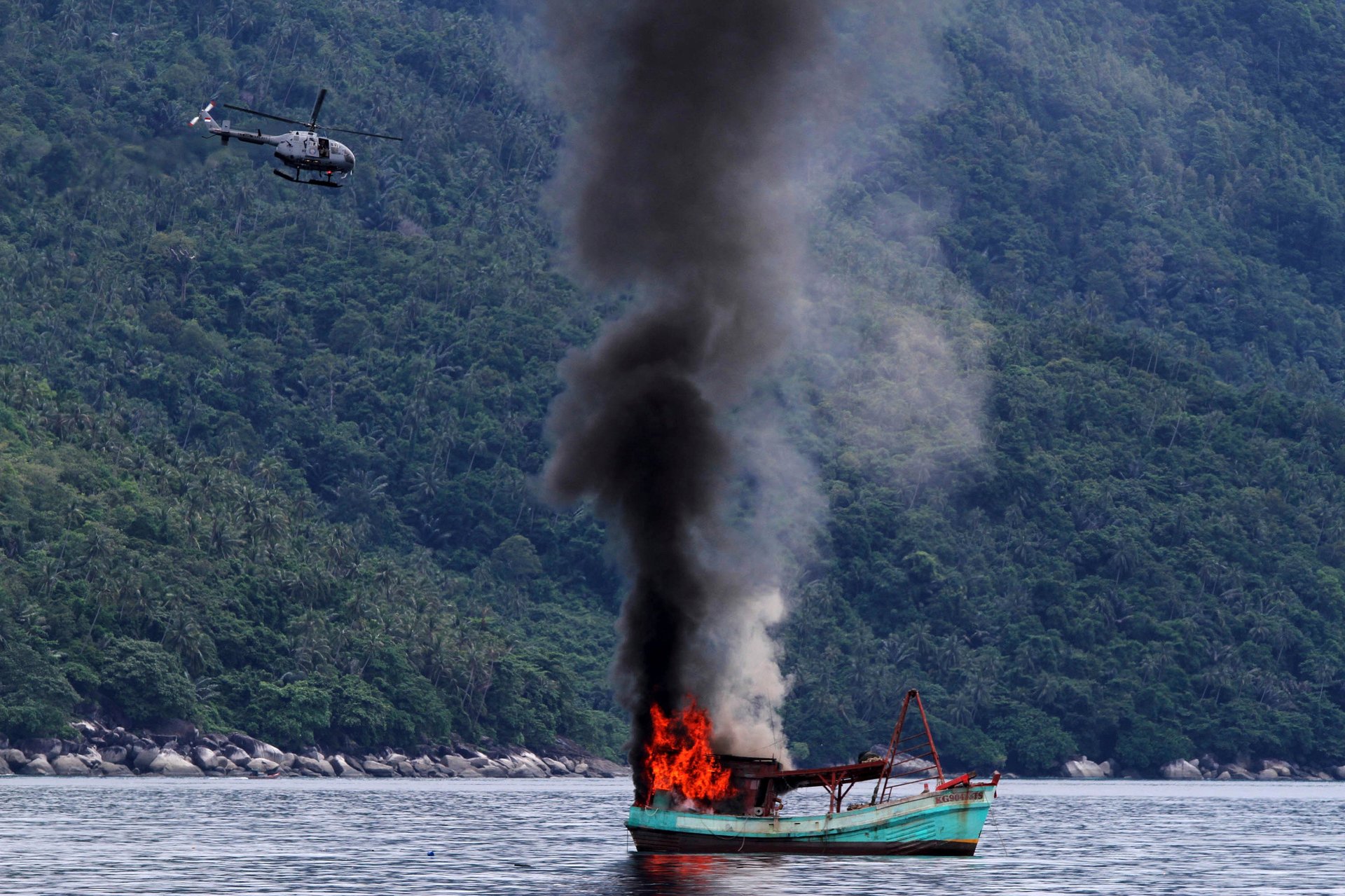Indonesia is sinking illegal fishing boats in dramatic fashion—and may be killing fish in the process
For the last few months Indonesia has been making a show of dramatically blowing up and sinking fishing boats from Vietnam that were illegally fishing in its waters. The crackdown has fueled the popularity of maritime affairs minister Susi Pudjiastuti, but environmentalists are not happy about the explosions, which could potentially cause major oil leaks and otherwise damage sensitive marine habitats.


For the last few months Indonesia has been making a show of dramatically blowing up and sinking fishing boats from Vietnam that were illegally fishing in its waters. The crackdown has fueled the popularity of maritime affairs minister Susi Pudjiastuti, but environmentalists are not happy about the explosions, which could potentially cause major oil leaks and otherwise damage sensitive marine habitats.
Though the government has been scuttling such vessels for years, the latest campaign started in December, when newly-elected president Joko Widodo’s government invited media to watch it launch explosives at three Vietnamese ships that had been caught fishing in its territorial waters. Numerous sinkings followed, including a Vietnamese vessel on Feb. 10.

“Camera crews filmed the boats going under in clouds of black smoke, against the backdrop of picturesque islands,” the Wall Street Journal reported in December. And it’s the presence of the black smoke—indicating burning oil— that worries some environmentalists, along with other disruptions to those very same picturesque islands.

“The use of explosives to sink the boat disturbs and threatens the fish near the location of the explosion—in a way, it has the same effect as using dynamite to catch fish,” Greenpeace campaigner Arifsyah Nasution told the Jakarta Globe. In addition, she said, debris from the boats turns into floating garbage.
The Globe reported that there was “no indication that the Navy properly cleans out the vessels of their highly polluting diesel and bunker oil before sinking them.”
The government has stubbornly persisted with its campaign, due in part to the positive attention it has received from foreign media outlets. Last week the Guardian said the latest sinking “reflects one of the biggest success stories in marine conservation,” citing efforts in the protected area near the Raja Ampat islands, off West Papua. To be fair, most of that enforcement has taken the form of seizing, not sinking, violators’ vessels.
The sinkings have also been a boon to the popularity of Susi, the Indonesian maritime minister, who this month earned a cabinet-best approval rating of 61%. She claimed in January that the sinking campaign has led to a 90 percent reduction in illegal vessels operating in Indonesia’s waters. And Widodo has said Indonesia was left with little choice but to take a hard line, as more than 5,000 illegal vessels operated in the country’s waters every day prior to the crackdown.
The environmentalists are not asking the government to stop its crackdown, and haven’t even called for an end to the sinking of illegal ships. But they want to see it employ greener practices, including draining the ships of fuel oil and other pollutants, and sinking them in water deeper than 40 meters, to avoid harming coral.
The end result may not make for such a dramatic media event, but the fish will probably appreciate the effort.